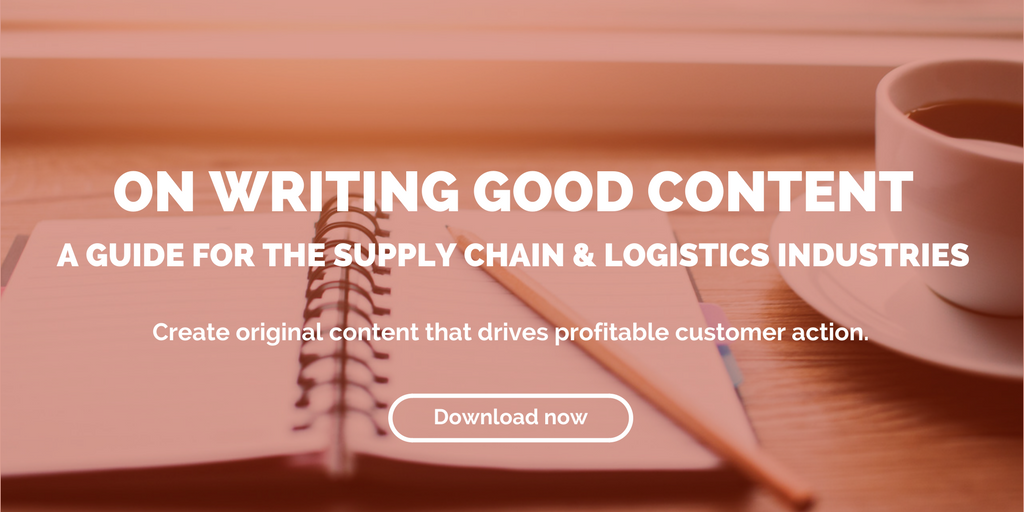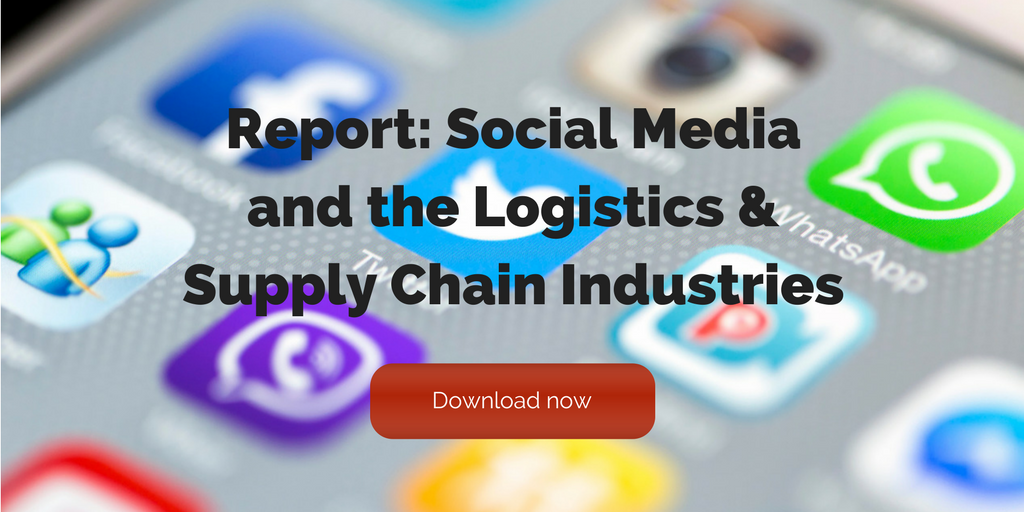
by Fronetics | Jun 13, 2019 | Blog, Content Marketing, Leadership, Logistics, Marketing, Supply Chain, Talent
A new LinkedIn post takes a refreshing look at achieving a work-life balance for working parents. The article has been shared all over social media begging the question: does your office need to know?
The New York Times reported that more and more couples are choosing to have smaller families due to economic factors. Let’s face it: kids are expensive. Most families have to balance wages with the exorbitant cost of childcare.
And that doesn’t even begin to look at finding harmony between your career and your family. In a recent post on LinkedIn, Ian Sohn, a single father and president of Wunderman Chicago, takes a clever and honest look at creating a work-life balance, a juggling act many of us know all too well.
“You should never apologize for having a life.”
The post was a list of things this Chicago-based boss ‘never needs to know’ about his employees, including:
- I never need to know you’ll be back online after dinner.
- I never need to know that you’re working from home today because you simply need the silence.
- I never need to know why you chose to watch season 1 of “Arrested Development” (for the 4th time) on your flight to LA instead of answering emails.
- I never need to know you’ll be in late because of a dentist appointment. Or that you’re leaving early for your kid’s soccer game.
- I never need to know why you can’t travel on a Sunday.
- I never need to know why you don’t want to have dinner with me when I’m in your town on a Tuesday night.
The sentiments of Sohn’s post hit home with a lot of working parents — the post has almost 2,000 comments to date. So why does this list ring true for so many working mothers and fathers?
“Like any modern business … there’s an additional need to respect other people’s lives and environment you work in, and everyone is accountable for getting their job done,” says Sohn in USA Today.
As businesses have become more digital, the ability to do you work remotely has increased. Ask any employee who works remotely, and they’re very likely to tell you that working from home makes them happier and more productive. And they aren’t necessarily wrong. There’s certainly evidence to suggest that with today’s technology, there’s essentially no downside to working from home, and it does often enhance productivity.
Here at Fronetics, we believe, much like Sohn, in the balance between work and home life. As individuals, we strive to excel at our jobs through accountability. Have a doctor’s appointment? Need to attend a school performance? We don’t need to know.
Has your office implemented policies to encourage flexibility? Has it been successful?
Related posts:


by Jennifer Hart Yim | May 28, 2019 | Blog, Talent
Soft skills are more important than ever, and emotional intelligence is arguably more important than all the rest.
Highlights:
- Because Supply Chain now touches on every aspect of a business, soft skills have become more important than ever.
- Emotional intelligence is the ability to understand one’s own emotions as well as the emotions of others.
- Emotionally intelligent people are more thoughtful about decisions within an organization. They’re able to see others’ points of view, and better judge how their decisions will impact others.
This guest post comes to us from Argentus Supply Chain Recruiting, a boutique recruitment firm specializing in Supply Chain Management and Procurement.
The rise of emerging technologies like big data and AI has changed the skills profile for a number of white collar careers – not the least of which is Supply Chain Management, which is our specialty at Argentus. Tools like SAP, other ERP systems and Supply Chain visibility software have opened up massive opportunities for people who can analyze data and draw intelligence. They’ve raised Supply Chain’s profile in companies. The function now drives and transforms big picture strategy instead of just fighting daily fires.
Supply Chain is a STEM field. People with engineering, data analysis, systems development, and other hard skills will always be important. But there’s something interesting happening in the skills profile for top Supply Chain people: because Supply Chain now touches on every aspect of a business, soft skills have become more important than ever. It’s a bit of a paradox, but it’s borne out in our conversations with clients, as well as executives across the field.
And in 2019, there’s one soft skill that reigns supreme: emotional intelligence.
[bctt tweet=”According to the World Economic Forum’s Future of Jobs report, emotional intelligence is the most important emerging soft skill heading into 2020. ” username=”Fronetics”]
According to the World Economic Forum’s Future of Jobs report, emotional intelligence is the most important emerging soft skill heading into 2020. This great article in Fast Company digs into the research. It examines the importance of emotional intelligence (EQ), and explains why hiring managers often prize EQ over IQ when identifying talent today.
What is emotional intelligence?
In short, it’s the ability to understand one’s own emotions as well as the emotions of others. It’s closely related with empathy, and leads to an increased ability to understand your team’s needs in the workplace. In general, research has found a correlation between high emotional intelligence and job performance, mental health, and leadership skills.
In a recent interview, Supply Chain VP Taras Korec identified emotional intelligence as one of the most crucial soft skills for everyone in the field, from the analyst level up to the VP level. He also said he hires based on attitude and emotional intelligence rather than hard skills.
But organizations don’t always see the value in developing their employees’ emotional intelligence, and this has big ramifications. As Taras put it, “if you’re an analyst and you go to your boss and say, ‘I want some training on the hard skills,’ that’s a pretty obvious sell. But how many people have the courage at the analyst level to say, ‘I want to take training on emotional intelligence’? A lot of leaders may not have invested in those skills themselves. They may not see the value in them, which reinforces that deficit throughout the organization.”
According to the research, these are some of the biggest career advantages enjoyed by people with high emotional intelligence (EQ):
- The ability to deal with pressure. Emotional intelligence helps you understand and regulate your own emotional state, which leads to better stress management and healthy coping mechanisms. Supply Chain is often a high-stress profession, with critical business outcomes riding on SCM planning and performance – so emotional intelligence is particularly helpful.
- Increased co-operation. The Fast Company analysis points out how workplaces are becoming more collaborative, as well as inclusive to people from different backgrounds. Emotional intelligent people are better relationship-builders, and that’s valuable in a field like Supply Chain where you’re often working with people from all over the world.
- The superpower of using feedback as fuel. In general, intelligent people tend to recognize the importance of self-improvement and skills development. But people with good emotional intelligence are also more open to others’ feedback – which is necessary to see what they need to improve. They don’t take criticism personally, so they’re better poised to turn feedback and areas of improvement in performance reviews into fuel for personal growth.
- Improved leadership skills. People with high emotional intelligence have better empathy, resilience, and ability to build influence – key traits for business leaders. Success in Supply Chain Management – especially in disciplines like Procurement – relies on an ability to build relationships and influence stakeholders from across the business. People with high emotional intelligence are great at rising above daily firefighting. They’re more likely to be seen as leaders within a business. They’re respected. People listen when they speak, even if they don’t have a “leadership” title. As Supply Chain VP Taras Korec said in our recent interview, “there’s no reason you can’t lead, regardless of your title.”
- Better decision making and ability to adapt to change. The business world is changing rapidly in the age of digital technology, and this is especially true within Supply Chain and Procurement, which are undergoing major transformations at top organizations. Emotionally intelligent people are more thoughtful about decisions within an organization. They’re able to see others’ points of view, and better judge how their decisions will impact others.
Like any soft skill, emotional intelligence can be intangible. It’s way harder for a Supply Chain professional to put emotional intelligence on a resume than their skills with a particular SAP module. Conversely, it’s also harder for a hiring manager to systematically screen for emotional intelligence than other “hard” skills. It’s harder to design a university course around. But the fact is, you know it when you see it, and truly great hiring managers know how to assess emotional intelligence in a job interview.
You might not find emotional intelligence in a list of SCM core competencies – but like any other soft skill, it’s crucial. And it’s only becoming more important.
Related posts:


by Fronetics | May 23, 2019 | Blog, Content Marketing, Marketing
Measuring brand awareness is a notoriously difficult task. Here are our favorite tools to help you refine your efforts.
Highlights:
- Tools for measuring brand awareness fall into two categories: social analytics tools and social mention tools.
- Our top 3 social analytics tools: Qualtrics, Ahrefs, and Brandwatch.
- Our top 3 social mentions tools: Netvibes, Mention, and Buffer Reply.
We often hear from our clients that measuring brand awareness is one of the slipperiest tasks when it comes to digital marketing. It’s a notoriously difficult marketing element to track, and not having an accurate picture can also make it difficult to evaluate the success of your overall digital marketing efforts, as well as to calculate ROI.
Luckily, there are tools that can help. Broadly, these tools for measuring brand awareness fall into two categories: social analytics tools and social mention tools.
- Social analytics tools are designed to help you determine the times your actions get the most engagement, as well as more detailed user demographics and interactions with your brand.
- Social mention tools track overall mentions for your brand, letting you see everywhere your brand has been mentioned and helping you determine which platforms are performing best for your content.
Here are our top three favorite tools in each category for measuring brand awareness.
Top 3 social analytics tools for measuring brand awareness
1) Qualtrics
Qualtrics boasts that it is “software to help turn customers into fanatics, products into obsessions, employees into ambassadors, and brands into religions.” While supply chain companies will likely raise an eyebrow at such lofty claims, this tool really has the potential to perform for B2B customers. Ideal for complex supply chain business, Qualtrics offers a variety of tools that measure buyer experience, brand experience, product experience, and employee experience.
2) Ahrefs
Ahrefs isn’t exactly a new kid on the block when it comes to measuring brand awareness. The company started in 2011, and has continued to update and add new features regularly, keeping it on the cutting edge of SEO tools. It’s one of the best backlink analysis tools available. Perfect for just about any business, the platform notably helps you analyze why your competitors are ranking in particular areas and what you can do to outrank them.

3) Brandwatch
Some of the most successful brands in the world have been empowered by Brandwatch, which is arguably the leader in social intelligence. The robust analytics features include insights within millions of online conversations, as well as optimized target influencer and other paid social campaigns. It also boasts its Vizia platform, which shares insights with decision-makers throughout your organization, promoting aligned efforts.
Top 3 social mention tools for measuring brand awareness
1) Netvibes
Netvibes lets you easily monitor all your digital assets, as well as customize them based on the insights it provides. Not only can you follow your social networks for brand mentions, you can create alerts for breaking news or publications on key topics. Additionally, you can gain valuable insights by filtering your mentions by author, date, location, language, company, and even more.
2) Mention
Mention lets you monitor your campaigns anywhere online, and “scour the web, social media, and more for powerful market insights.” The platform offers real-time monitoring, letting you get live updates as you launch a campaign, for example. You can create custom insights, involving everything from social media, forums, blogs, and virtually every bit of the web.
3) Buffer Reply
We’re including Buffer Reply because it’s unusual in its focus. While other tools give you access to all your mentions on the web, Buffer Reply lets you hone in on a specific target client or demographic. The platform shows you everything you need to know about the client you’re talking to, each time they’ve mentioned or interacted with your brand. We recommend using it in conjunction with a broader tool like Google Alerts.
Related posts:


by Fronetics | May 16, 2019 | Blog, Content Marketing, Logistics, Marketing, Social Media, Supply Chain
LinkedIn is a powerhouse B2B social media network and an ideal place for gaining industry insight. Here are 8 must-follow professionals on LinkedIn for the supply chain.
Highlights:
- 94% of B2B marketers are using LinkedIn to distribute content.
- With its publishing platform, LinkedIn lets users create long-form content.
- Follow industry thought leaders to fill your LinkedIn newsfeed with the most up-to-date insights and analysis.
LinkedIn is an overwhelmingly popular platform for B2B marketers when it comes to content distribution. In fact, recent reports indicate that 80% of B2B leads come from LinkedIn, as opposed to 13% from Twitter and 7% from Facebook. The platform isn’t just a powerhouse when it comes to content distribution and lead generation. LinkedIn, for the supply chain, is also an ideal place to keep up with industry news, trends, and thought leadership.
[bctt tweet=”Recent reports indicate that 80% of B2B leads come from LinkedIn, as opposed to 13% from Twitter and 7% from Facebook. ” username=”Fronetics”]
One of the features that sets LinkedIn apart is its Publishing platform. Through the network, users can create long-form posts and articles and share them with followers. This means your LinkedIn newsfeed can become a go-to resource for keeping pace with the latest in-depth industry analysis. Having the right connections in the industry is key to curating the most valuable content for your newsfeed. Here are our 8 favorite professionals to follow on LinkedIn for the supply chain and logistics industry.
Top 8 professionals to follow on LinkedIn for the supply chain
Don Tapscott, Co-Founder and Executive Chairman of the Blockchain Research Institute
A preeminent authority on the impact of technology on business and society, Don Tapscott has written 16 books and has a record of over three decades of thought leadership. In 2017, Tapscott and his son, Alex, co-founded the Blockchain Research Institute, with more than 70 projects doing definitive investigation into blockchain strategy, use-cases, implementation challenges, and organizational transformation. Blockchain has the potential to reshape the supply chain. Tapscott is a great resource for staying ahead of the changes that are coming.
Kelli Saunders, President of Morai Logistics Inc. at Mode Transportation Associates
Recently named as one of Canada’s Top 100 Most Powerful Women, Kelli Sanders is blazing a trail for women in the supply chain. Recognized for her extensive work in the Women’s Executive Network, Saunders actively speaks on encouraging women/young leaders to pursue rewarding careers in entrepreneurship, supply chain, and logistics. In 2016, we were fortunate enough to interview Saunders, who shared her insights on key issues within the supply chain.
Sean Griffey, CEO and Co-Founder at Industry Dive
A recipient of the Digital Hall of Fame and Media News Award, Sean Griffey specializes in strategic growth planning, financial management, technology strategy, online media, lead generation, business development, and B2B media. His company, Industry Dive, publishes business news and original analysis in 12 vertical markets. Griffey continues to run the Logistics and Supply Chain Professionals group on LinkedIn, with nearly 300,000 members.
Tim Debus, President & CEO of Reusable Packaging Association
Tim Debus brings his 20+ years of experience in bringing to market new technologies and leading industry initiatives to improve the production and supply of agricultural commodities. He focuses on promoting the use and value of reusable transport packaging systems and advancing the common business interests of members of the Reusable Packaging Association. He works to clearly demonstrate supply chain efficiencies, environmental benefits, ergonomic improvements, and cost advantages to end users in all industries.
Patrick Bian, Director of Supply Chain Management at Watts Water Technologies
Patrick Bian boasts an impressive track record developing supply chain strategic roadmaps and leading multi-national teams to support the business vision for global companies. In his work at Watts Water Technology, he provides solutions used to safely convey, conserve, and manage water. Standing president of the French American Chamber of Commerce, New England for the past four years, Bian is also a lecturer at Northeastern University for the Masters Program in Business and Engineering.
Yossi Sheffi, Professor of Engineering and Director of the MIT Center for Transportation and Logistics
An expert in systems optimization, risk analysis, and supply chain management, Dr. Yossi Sheffi is a leading academic in supply chain and logistics studies. He has authored numerous award-winning books, consulted with leading entrepreneurs, and founded or co-founded five successful companies. His LinkedIn publications highlight industry trends ranging from autonomous driving to the latest in retail and e-commerce.
Adrian Gonzalez, President at Adelante SCM & Founder/Host of Talking Logistics
Adrian Gonzalez is a well-respected, trusted, and influential supply chain and logistics analyst and strategic advisor to high-level executives in manufacturing, retail, third-party logistics, and technology companies. He is the founder, host, and creative force behind Talking Logistics, a weekly online video talk show. On both LinkedIn and Talking Logistics, he gives supply chain and logistics professionals interactive and engaging information about the industry, focusing on interviews with thought leaders and key players.
Bart De Muynck, Research Vice President at Gartner
Bart De Muynck is a prolific and insightful publisher on LinkedIn, where he analyzes complex technology topics that are currently impacting the transportation sector. He frequently writes about advanced transportation management systems, as well as the many ways blockchain will impact the supply chain industry.
Did we miss anyone? Who are your favorite professionals to follow on LinkedIn for the supply chain?
Related posts:


by Fronetics | May 13, 2019 | Blog, Content Marketing, Marketing, Social Media, Supply Chain
Instagram Stories offer an on-trend platform for delivering targeted content to B2B buyers, and we’re joining the fun.
We’ve written extensively about the benefits of using Instagram as a part of your social media strategy. And, though we’ve been active on Instagram for over two years, we’re now taking on Instagram Stories.
Instagram Stories are sequences of content that a user (or business) posts to Instagram over a 24-hour period. Besides photos, Stories can include videos, live and prerecorded. The content plays as a continuous feed, creating a narrative about the user’s day — hence the term “Stories.”
Audiences can view the Stories of the users they follow within the 24-hour window after they are posted. They can find users with active Stories by scrolling the user icons at the top of the app. Or users can tell their followers that they’ve posted a story by tagging them, which notifies them through a direct message.
Fronetics’ Stories will be a fun mix of breaking news, highlights of upcoming events, and live video on the latest industry trends. Ideas for Stories you’d like to see us cover? Email me at [email protected].
Related posts:











